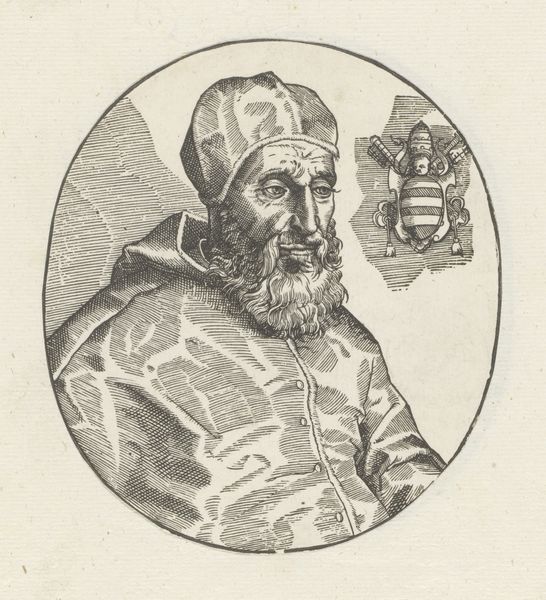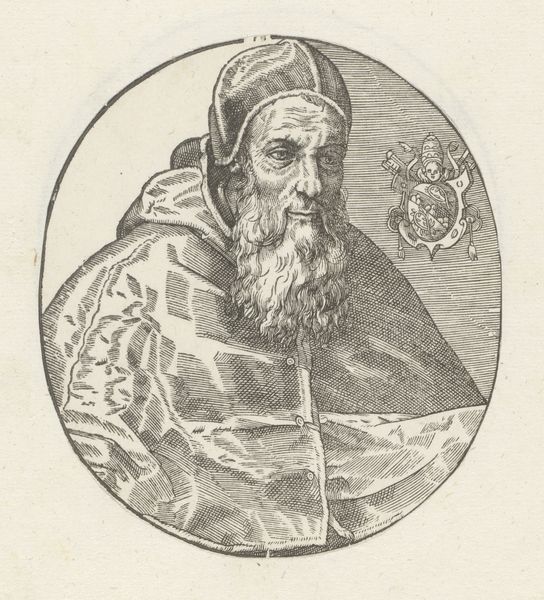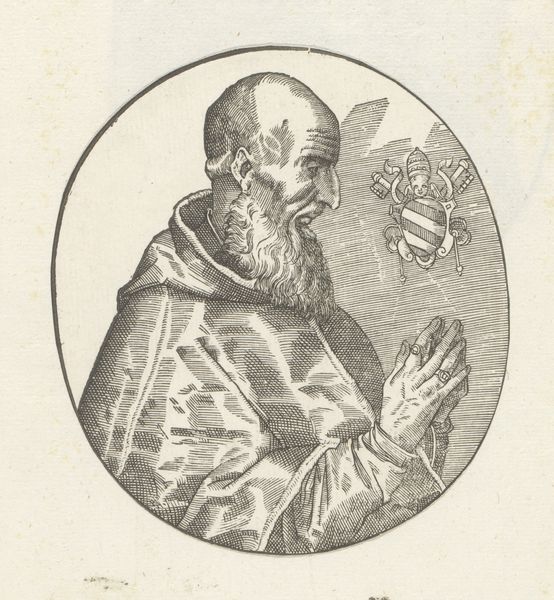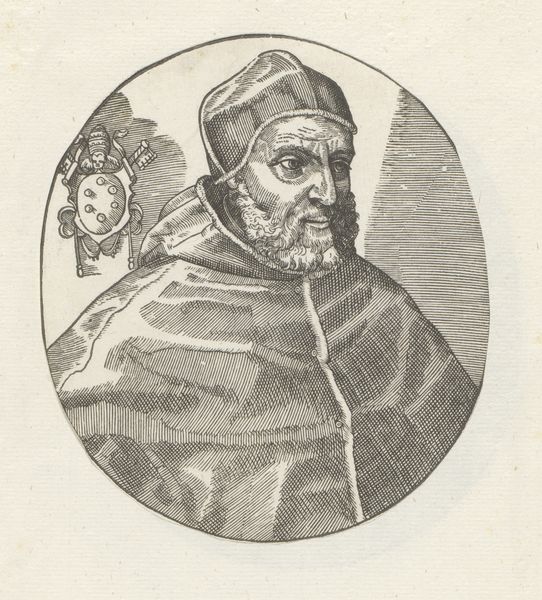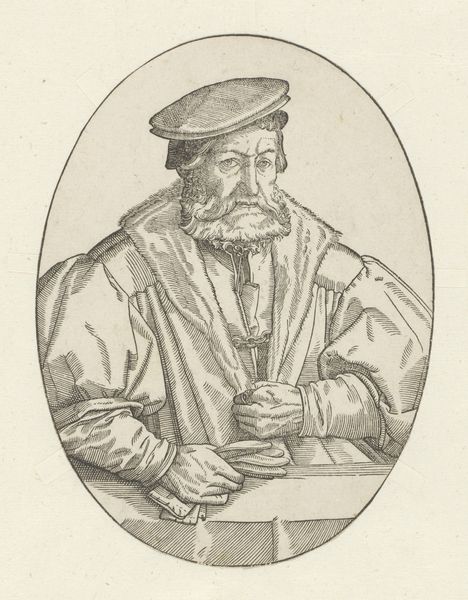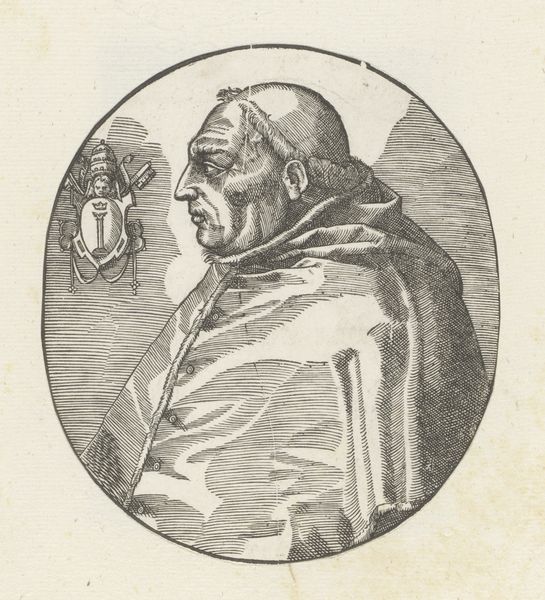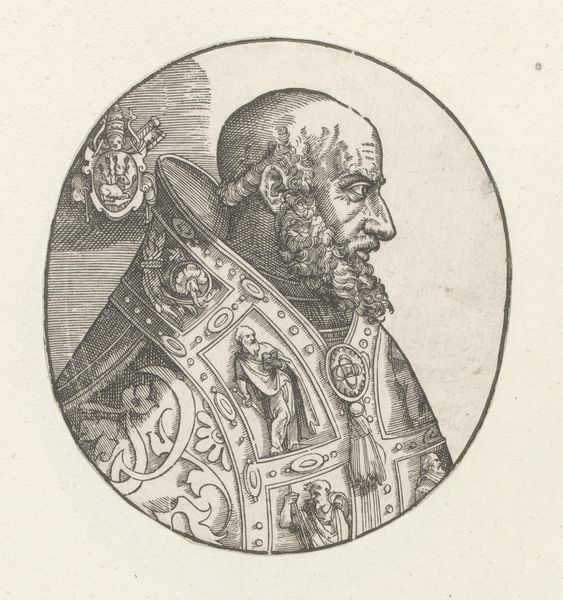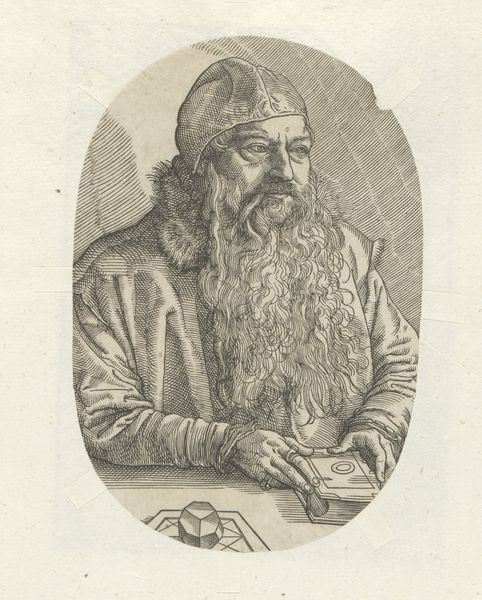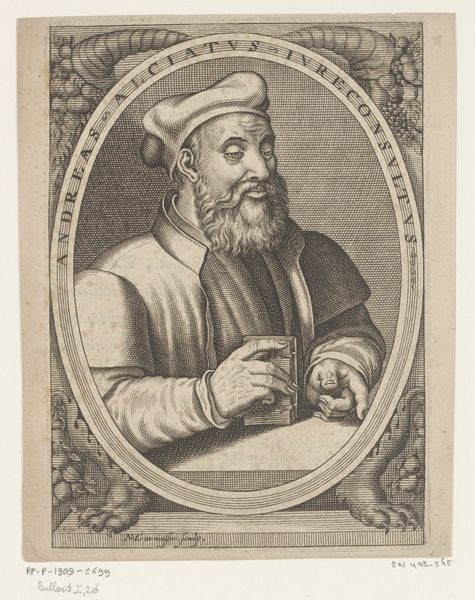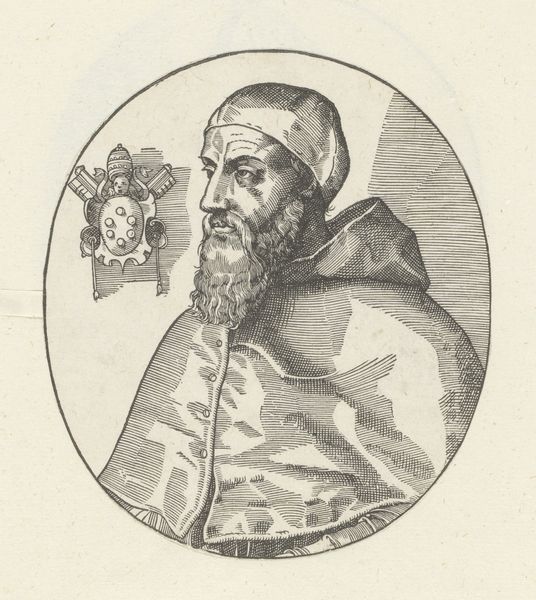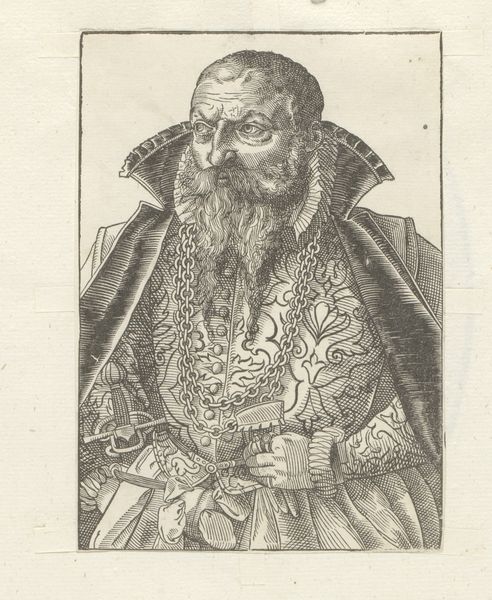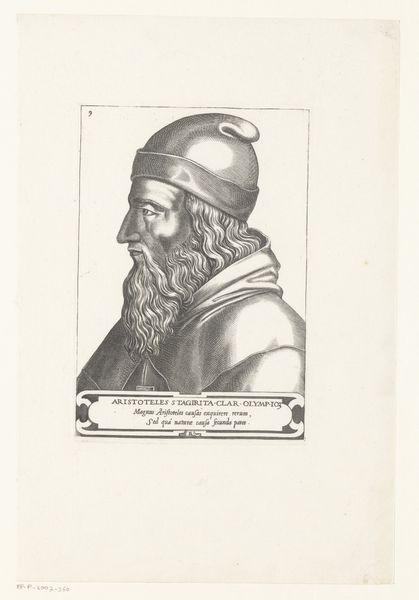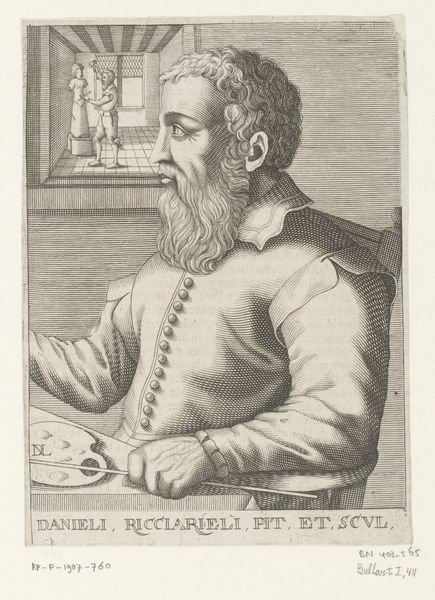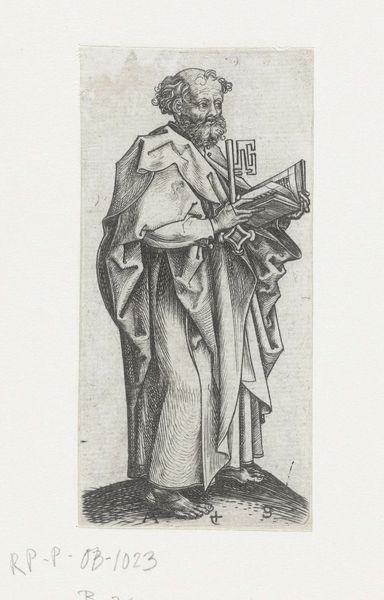
print, engraving
# print
#
old engraving style
#
11_renaissance
#
history-painting
#
engraving
Dimensions: height 125 mm, width 113 mm
Copyright: Rijks Museum: Open Domain
This print of Pope Julius II was made by an anonymous artist, using a technique of engraving. The artist would have used a tool called a burin to carve lines directly into a metal plate, which was then inked and printed. Look closely at the lines that define the form, and you can see the artistry of this method, and the amount of labor involved. The lines are not only descriptive, but also create tone and texture, bringing the image to life. Engraving requires precision, control, and an understanding of how light interacts with the etched surface. Prints like these were crucial for disseminating images and ideas in early modern Europe. They allowed for the mass production of portraits, religious scenes, and scientific illustrations, making information more accessible. In this way, the print bridges the gap between the unique artwork and the wider world of craft and commerce, inviting us to consider how it participated in a broader economy of images.
Comments
No comments
Be the first to comment and join the conversation on the ultimate creative platform.
